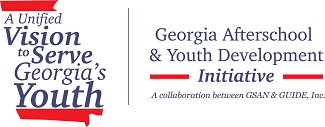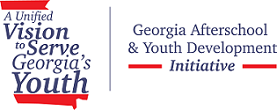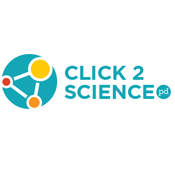Featured Resource
Creating a Safe Space
Children need to feel supported in the learning environment, especially when we are asking them to experiment and learn through trial and error. Click 2 Science’s resources will help you learn strategies for creating a physically and socially safe space for students to explore STEM activities.
Curriculum
Bullying and Children with Special Needs (Report and Guide) – Ability Path
Global Learning Quick Sheets, Handouts, and Toolkits – Asia Society
Global Oneness Project (Lesson Plans)
Promoting Diversity, Access, Equity and Inclusion – San Francisco Expanding Learning Collaborative
Youth-Driven Space – Formative Index – Neutral Zone: Youth Driven Space
A Place of Their Own: Designing Quality Space for Out-of-School Time (Video) – Wellesley Centers for Women
Afterschool Materials Guide – Yvonne & Schuyler Moore Child Development Research Center of the University of South Carolina
Great Afterschool Programs and Spaces That Wow! (Book) – Linda J. Armstrong
Youth Voice Guidebook – David P. Weikart Center for Youth Program Quality
Inclusion Tool Kit for After School Programs – Special Needs Inclusion Project
Teaching Tolerance: A Project of the Southern Poverty Law Center
Inclusive Practices Tip Sheets – Special Needs Inclusion Project
Understanding Gender Identity in Young People: A Briefing Paper for Afterschool Programs – Temescal Associates
Ensuring Accessing to Mentoring Programs for LGBTQ Youth – Williams Institute
Leveraging Afterschool for English Language Learner Success – Foundations, Inc.
Early Learning Climate Videos from Get Georgia Reading
Use New Digital Tools from ARTHUR to Help Promote Prosocial Skills and Reduce Bullying – Afterschool Alliance
Nurturing Social-Emotional Learning in Out-of-School Time – Public Profit
Creatively Using Your Space, Time, and Materials – Click2Science
Creating a Safe Space for Vulnerable Youth – Click2Science
Research & Best Practices
English Learners and Out-of-School Time Programs – Afterschool Matters
Child Trauma Toolkit for Educators – The National Child Traumatic Stress Network
Safe Spaces. Safe Places: Creating Welcoming and Inclusive Environments for Traumatized LGBTQ Youth (Resource Guide) – The National Child Traumatic Stress Network
Safe Spaces. Safe Places: Creating Welcoming and Inclusive Environments for Traumatized LGBTQ Youth (Video) – The National Child Traumatic Stress Network
“This is Their House, Too”: An Afterschool Space Designed for and by Teenagers – The Harvard Family Research Project
Afterschool Supporting Students with Disabilities and Other Special Needs (Issue Brief) – Afterschool Alliance
Children of Latino Immigrants and Out-of-School Time Programs – Child Trends
Making a Makerspace? Guidelines for Accessibility and Universal Design – University of Washington
Inclusion of Children with Special Needs in After School and Summer Programs – New Jersey Department of Human Services
Promoting Diversity, Access, Equity and Inclusion – San Francisco Expanded Learning Collaborative
English Language Learners in Out-of-School Time – Boston Children’s Museum
Strategies to Support English Language Learners – Edutopia
Supporting children, youth and families in the systems that serve them – American Psychological Association



